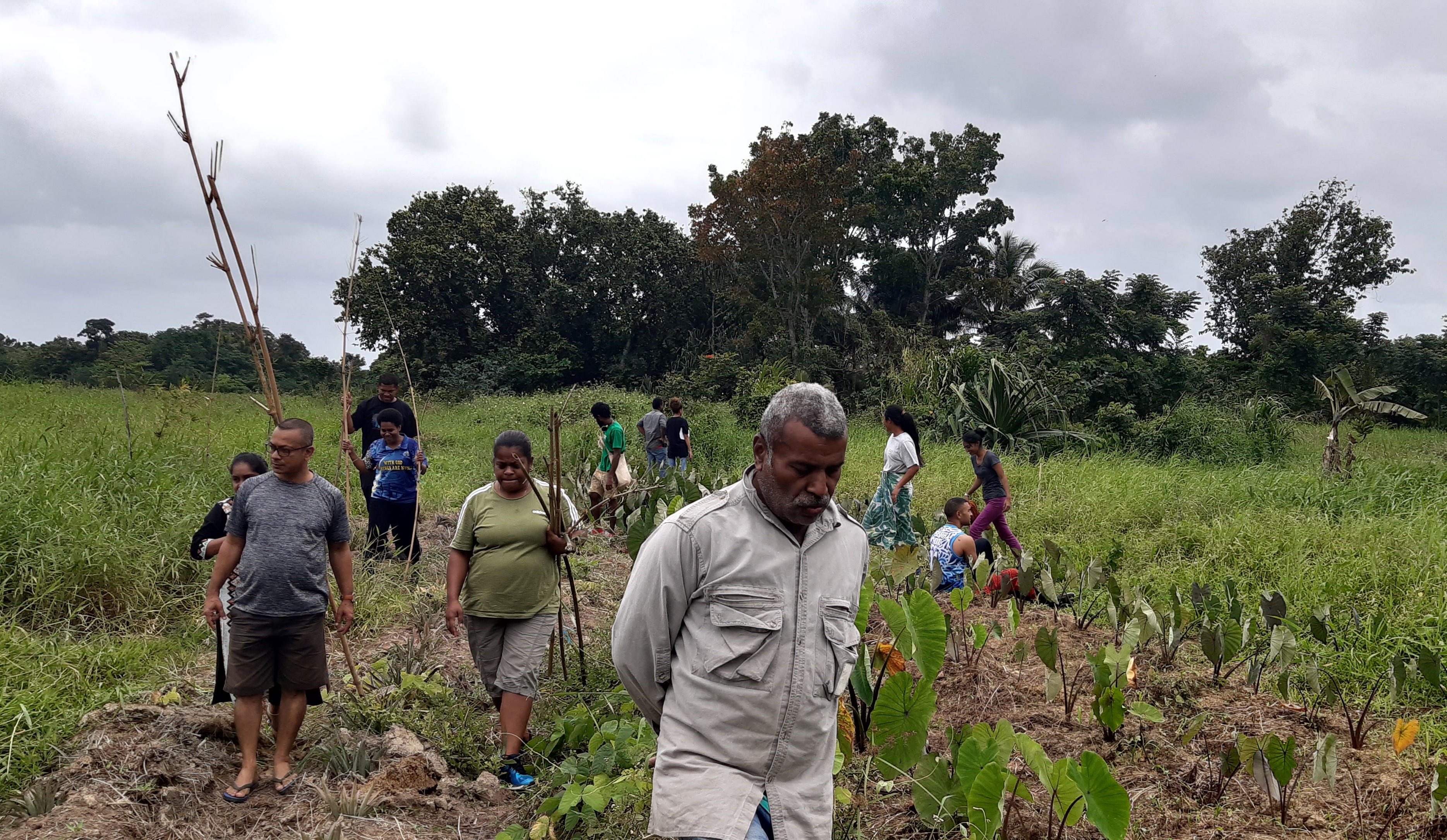
Government promotes Agro-Forestry For Food, Nutrition and Income Security
Sixteen years ago Niko Bukarau was given 7 acres of land by
his dad at Navikiwala in Dreketi, Rewa. At the time, Mr. Bukarau was 41
years-old and a soldier with the Republic of Fiji Military Forces. “All my Dad
told me was to develop the land and that Government services will be available
for me along the way,” Mr. Bukarau said.
Mr. Bukarau heeded his dad’s advice and after building his home, he started to toil the land by planting vegetables and other root crops which his family now consume – fresh from the farm to the table. All surplus crops are sold to provide additional income for the family.
“Late last year, one of my relatives home burnt down and I witnessed first-hand the struggle he went through to rebuild. It was then that I decided to plant trees on my farm and to also learn more about, and practice Agroforestry.”
After reaching out to various Government agencies and their different networks for advice, Mr. Bukarau managed to secure assistance from the Ministry of Forestry through its collaboration with the Food and Agriculture Organisation (FAO) in relation to Agroforestry, and increasingly now with the Ministry of Agriculture.
Agroforestry is considered a sustainable and efficient land management system combining crops, trees, and sometimes livestock.
The recent Achieving the Global Goals through Agroforestry report by the International Institute for Sustainable Development states that agroforestry can contribute to food security, increase biodiversity, and combat climate change and more importantly attract policy attention and investment to fulfill its potential. The report presents evidence of how agroforestry can contribute to the implementation of 9 out of the 17 Sustainable Development Goals (SDGs).
Agroforestry has the strongest impact potential on poverty reduction (SDG 1) and hunger alleviation (SDG 2), as well as on climate action (SDG 13), and biodiversity conservation and sustainable land management (SDG 15).
Furthermore, the report states that agroforestry can contribute to other goals by improving gender equality (SDG 5) and health (SDG 3), as well as by increasing access to clean water (SDG 6), sustainable energy solutions (SDG 7), and responsible agricultural production (SDG 12).
“Through FAO, students from the University of the South Pacific (USP) have been coming to the farm to assist with planting native and fruit trees for my future timber needs,” Mr. Bukarau said.
Since 2019, USP students have been visiting the farm each semester to plant trees and vegetables.
On the recent Constitution Day public holiday, Alumeci Wara a second year Bachelor of Education student at USP was part of a group planting trees at Navikiwala Farm.
“I am so proud of myself today because I have never planted trees like this, even at my own home. As I planted trees on Mr. Bukarau’s farm, I realised the importance of trees, forests and nature as a whole considering what it happening around the world with climate change and the ongoing COVID-19 global pandemic. All this has compelled many people to turn to natural resources,” she said.
Minister for Forestry Honourable Osea Naiqamu said that food security is vital, especially in these challenging times, which is why the planting of fruit trees and the adoption of agroforestry practices is a key component of the 30MillionTreesIn15Years initiative that is being implemented across Fiji.
“We hope farmers will take agroforestry practices on board in order to improve food, nutrition and income security as well as improve their resilience to climate change while conserving biodiversity,” he said.
He added that Government is responsible for the sustainable development, utilisation and management of Fiji’s natural resources – with forestry being one of the key resource-based sectors.
Minister Naiqamu said that COVID-19 stormed the world and exposed the vulnerability of the socio-economic systems to external shocks, and that Fiji, like any other country, is trying its best to manage the devastating impacts of COVID-19 by looking at ways it can sustain the economy and support the livelihood of our people.
He said the Ministry of Forestry has a budget of $15.7 million this year and with the help from its dedicated stakeholders the ministry is committed to helping the nation reignite economic activities and contribute to Fiji’s green recovery that is climate-neutral, resilient, sustainable and inclusive.
In terms of agroforestry, the Ministry has eight (8) pilot sites across Fiji where it is strengthening collaboration with the Ministry of Agriculture to determine the best agro-forestry combinations.
In the meantime, the now 63 years old, retired soldier and agroforestry enthusiast Mr. Bukarau said that he is grateful for the assistance he has received from Government and the FAO, and he looks forward to an ongoing collaboration through Government’s extension services to the farmers.